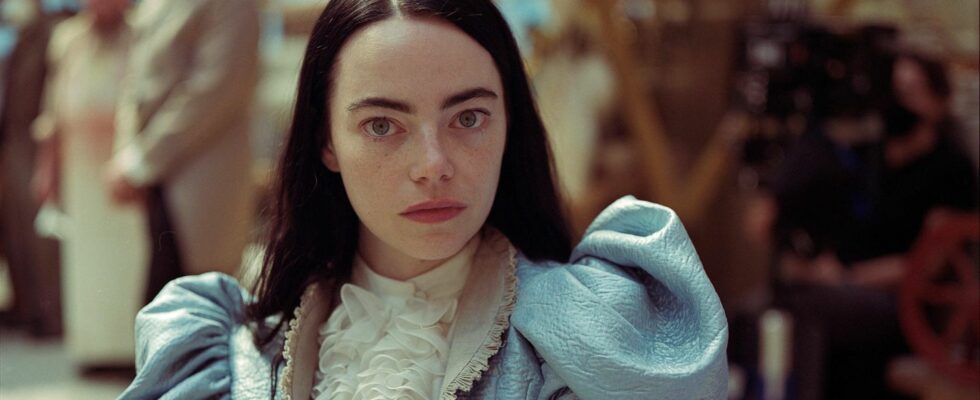“Poor Things”
Find the Bella Baxter in you
© ZUMA Wire / imago images
In the film “Poor Things” Emma Stone immerses herself in the role of Bella Baxter in a fascinating way. Can we do that too?
Feminism meets Frankenstein
Its creator calls it an experiment. She considers herself a “changing creature”. Bella Baxter, played by Emma Stone, is the main character of the film “Poor Things”, which is currently in cinemas and has already been nominated for eleven Oscars. According to the description, it’s about a further development of Frankenstein, a woman who is dead and then alive again, who is kept hidden and breaks free. In the cinema you notice: we are dealing with a modern feminist fairy tale. Social criticism creeps into your head with colorful images, and it sticks with extraordinary sounds.
Colorless to colorful
Bella moves differently. What does that even mean? Her childish movements don’t match her adult body, nor does her jerky speech. She lives in a dark house surrounded by pig-headed half-ducks, a housekeeper, and her creator, Godwin. Her world, like the first few minutes of the film, is colorless. She is not allowed to leave the house, whether out of protection or embarrassment from all the otherness, presumably of both kinds. But Bella is developing. And the more mature her brain becomes, the more curious she becomes. At some point, self-experiments with fruit in body openings at the dinner table are no longer enough. Bella wants out. And she leaves.
We experience her coming of age as an emancipation – from her home, but above all from society, whose conventions she never had to get to know. Why small talk? Why only eat one tart instead of eight? Why abstinence? And what exactly is this strange property that men seem to naturally place on women?
“Your sad look makes me find angry feelings for you”
Bella discovers her free will in Portugal, at sea and in Paris. And live it out without questioning it for a second. Instead of doubting herself, she doubts the resistance she encounters. She needs money and loves sex (or wild bouncing, as she puts it), so she goes to the brothel without further ado. And he asks in astonishment: why don’t the sex workers choose their customers themselves – instead of the other way around? And what does her travel and bed companion actually have against the way she disposes of her body?
“Your sad look makes me find angry feelings for you”Bella replies in her strange language to the accusations that men throw at her when she does what she likes – but they don’t. “Why keep something in your mouth if it’s disgusting?”she represents her food and genital preferences and what she is convinced is, “It is everyone’s goal to develop and grow”so she does.
What is shame?
Of all people, the actress who, according to the dpa interview, had previously succumbed to her shame “like an addiction” now completely frees herself and us from it in her role in “Poor Things”. She twists her body on the screen, dances ecstatically, laughs and cries and gives herself to both. SPIEGEL reports, Emma Stone learned “how worthwhile it is to dare to do things that I never even thought I would find the courage to do.”
Bella Baxter naturally evades the control of men, customs and shame. “I am a fallible and experimental person,” is how she describes herself. Aren’t we all like that if we dare?

